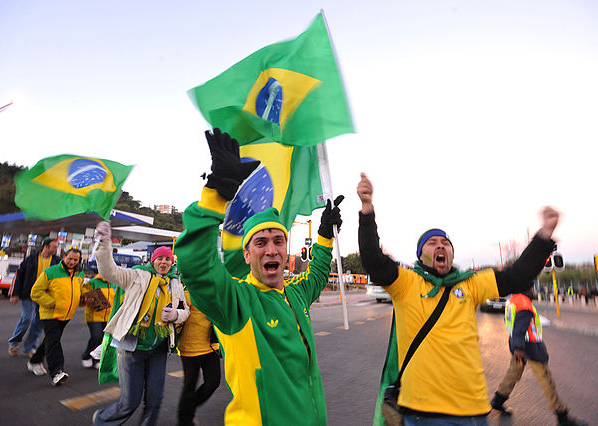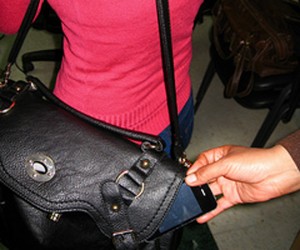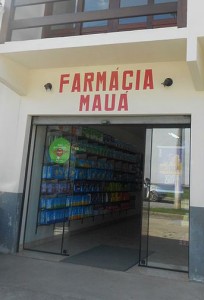
Are you one of the lucky 140,000 Americans with tickets to the 2014 World Cup? With the event spanning twelve cities across Brazil, the country will be flooded with tourists and spectators from all over the world. The energy and excitement of this many people at a major sporting event makes for an amazing atmosphere, but also opens up some health and safety concerns. Enjoy the game while staying healthy and safe with our advice!
Stay Connected: This not only includes familiarizing yourself with your destination prior to your trip, but keeping track of what is being reported in the media about recent developments while you’re away. Social media sites provide up-to-date information for travelers, but it is best to trust vetted information sources only. The State Department’s website at travel.state.gov offers a wealth of up-to-date information including Travel Warnings and Travel Alerts. You can follow the State Department on Twitter (@travelgov) and the Bureau of Consular Affairs on Facebook. Also, if you haven’t registered your travel plans with the State Department’s Smart Traveler Enrollment Program (STEP), do it today! STEP enrollment provides you with the latest safety and security updates for your destination and also makes it easier for the U.S. embassy or consulate to contact you in an emergency. There’s even an app for that!
Use Common Sense: Brazil experiences a high level of crime and violence, particularly in big cities. Some general safety advice includes:
- Follow our tips for good hotel safety.
- Leave a copy of your itinerary, credit cards, and passport with someone at home.
- Carry a photocopy of your passport and entry stamp; leave your actual passport securely in your hotel safe.
- Blend in and avoid wearing clothing that identifies you as an American such as “I Love NY” T-shirts or sweatshirts with your favorite sports team.
- Do not wear expensive clothing or jewelry or carry lots of cash.

- Think “safety in numbers.” Whenever possible, travel with a group. If you must travel somewhere alone, always tell someone where you’re going.
- Avoid fiddling with maps and tour books out in the open. This increases your chances of getting hassled by pickpockets who target lost and vulnerable travelers.
- Be extra cautious of your surroundings at night; stick to well-lit streets and avoid bus and train stations, subways and empty parks.
- Stay alert and trust your instincts – be aware of what is going on around you. If you feel uneasy about something or someone, leave.
- Get acquainted with your surroundings “on the DL” with a tool like Google Maps.
- Keep your mobile phone with you at all times, even if it’s just for emergencies (and don’t forget … sometimes making an international phone call is harder than you may think!).
- Program the contact information for the nearest US embassy or consulate in Brazil in your phone as well as the local emergency service numbers: 190 (police), 192 (ambulance), and 193 (fire department). And of course, don’t forget the number for your travel assistance company!
Note: These local emergency phone numbers are available in Portuguese only. If you don’t speak Portuguese and need help with a health issue, see the CDC’s list of common Portuguese health terms. Or, even easier — On Call members have access to language interpretation and translation 24 hours a day, 365 days a year.
Choose safe transportation: Motor vehicle crashes are the #1 killer of healthy U.S. citizens in  foreign countries. Brazil has a high road accident rate, and in many rural areas, road quality is poor. Brazilian traffic is not only hectic, but full of unspoken rules. Moreover, Brazilian cities aren’t pedestrian-friendly, so your best (and safest!) bet is to utilize public transportation instead. Research the websites for the cities you’re visiting (like this one for São Paolo and this is the one for Rio). You can also ask your hotel concierge, travel agent or travel assistance company for practical help on getting around.
foreign countries. Brazil has a high road accident rate, and in many rural areas, road quality is poor. Brazilian traffic is not only hectic, but full of unspoken rules. Moreover, Brazilian cities aren’t pedestrian-friendly, so your best (and safest!) bet is to utilize public transportation instead. Research the websites for the cities you’re visiting (like this one for São Paolo and this is the one for Rio). You can also ask your hotel concierge, travel agent or travel assistance company for practical help on getting around.
Understand local healthcare: In Brazil, foreigners are entitled to emergency medical treatment in public hospitals, but the public health system — especially in big cities — tends to be crowded. Private hospitals will not treat you unless you have proof that you can pay, which can be tricky if your health insurance doesn’t have international coverage. Also, both public and private health facilities in remote regions can be very basic with limited capabilities. The CDC posted some health and safety recommendations for Americans who plan to travel to Brazil during the World Cup. Among them was the recommendation to purchase medical evacuation services (such as those offered by On Call!) prior to your trip. If you experience a medical emergency, On Call can provide you with medical transportation, including medical evacuation, to the hospital of your choice. Additionally, we provide our members with worldwide medical, dental, and pharmacy referrals, prescription assistance, 24-hour nurse helpline as well as guarantees of payment and benefits coordination (useful in those instances when you have to show proof of payment to receive treatment).
Bring your own medicine: Take a good supply of your regular medicines, as they may not be  readily available. Counterfeit medicines have also been an issue in Brazil, so better to travel with your own supply. Consider packing a DIY travel first aid kit with necessary emergency medical supplies at your fingertips. Some items to include in your kit are pain relievers, Band-Aids, decongestants, antacid, cough drops, and your prescription medications. Don’t forget to keep your medications in their original pharmacy-labeled containers to avoid questions, or confiscation, at customs. Also, it couldn’t hurt to check with the U.S. Embassy in Brazil to make sure none of your required medications are considered illegal narcotics.
readily available. Counterfeit medicines have also been an issue in Brazil, so better to travel with your own supply. Consider packing a DIY travel first aid kit with necessary emergency medical supplies at your fingertips. Some items to include in your kit are pain relievers, Band-Aids, decongestants, antacid, cough drops, and your prescription medications. Don’t forget to keep your medications in their original pharmacy-labeled containers to avoid questions, or confiscation, at customs. Also, it couldn’t hurt to check with the U.S. Embassy in Brazil to make sure none of your required medications are considered illegal narcotics.
Practice good food and water safety: Eating contaminated food and water can put you at risk for hepatitis A, typhoid fever and travelers’ diarrhea. Stick to bottled water, avoid food from street vendors, make sure your cooked food is served hot, and eat fruits and vegetables you have washed in clean water or peeled yourself. For more safe food and water tips, check out the CDC’s Food and Water Safety page.
Pack plenty of repellant and sunscreen: Diseases spread by mosquitos, such as malaria, dengue and yellow fever are common throughout Brazil. Wearing repellant that contains DEET, Picaridin, oil of lemon, eucalyptus/PMD or IR3535 is a good precaution, along with these other measures outlined by the CDC. Make sure to apply bug repellant after applying your sunscreen. And speaking of sunscreen—even though June and July are winter months in Brazil, weather forecasters are still predicting sweltering temperatures across some of the stadiums (check out this handy website, updated daily, to access a forecast for every game of the World Cup!). Use an SPF 30 (UVA/UVB) sunscreen frequently and re-apply every two hours or immediately after excessive sweating. As mentioned earlier, sunscreen should be applied prior to insect repellant.
Safe Travels!
Photo credits:
Cheering fans from Marcello Casal Jr/ABr
Pickpocket from Formation04 / Flickr
Bus with soccer fans from André Gustavo / Flickr
Pharmacy from Eduardo P / Wikimedia Commons


